Pathways not pipelines
Reflections on a Plant Science Research Network Workshop from an Early Career Scientist
by Nikki Forrester
 It was a quiet morning in August. I sat in my apartment, sipping coffee and sifting through emails. “We are seeking early career scientists . . . who are eager to participate in a facilitated ‘visioning’ exercise on the future of plant science training.” Uncertain, but intrigued by what the experience would entail, I submitted an application. A week later I was accepted to the Plant Science Research Network (PSRN) Workshop to Improve Training in the Plant Sciences.
It was a quiet morning in August. I sat in my apartment, sipping coffee and sifting through emails. “We are seeking early career scientists . . . who are eager to participate in a facilitated ‘visioning’ exercise on the future of plant science training.” Uncertain, but intrigued by what the experience would entail, I submitted an application. A week later I was accepted to the Plant Science Research Network (PSRN) Workshop to Improve Training in the Plant Sciences.
The workshop was held September 19–21, 2017, at a hotel in Baltimore, Maryland. I arrived late in the afternoon on the first day, unpacked my belongings, and wandered down to Ballroom C. A welcoming mix of organizers and attendees were conversing about travel and research interests. I was amazed by the diversity of institutions, plant science backgrounds, and career goals present among just 30 individuals.
David Stern kicked off the meeting and introduced other members of the PSRN leadership team: Crispin Taylor, Vanessa Greenlee, and Natalie Henkhaus. Then he introduced two “provocateurs” who inspired us to push the boundaries of our thinking. Through these discussions, the room transformed into an open, accepting space where we could create, synthesize, and challenge each other’s ideas.
After a full night of sleep and a hearty breakfast, I was eager to return to the ballroom and begin generating ways to improve training in plant science. I found a seat among a semicircle of scientists and was introduced to Susan Stickley, the strategic planning facilitator. Before the workshop, we were asked to read Imagining Science in 2035 (http://bit.ly/ImaginingScience), a document that describes four scenarios of plant science research in the future. The divergent scenarios were created using two critical uncertainties: the primary driver of plant science research and the research environment.
Susan provided an overview of the scenarios and then separated us into groups, each tasked with dissecting one of the four scenarios. I was part of a team exploring Critical Science, a scenario in which the “world [is] driven by increasing vulnerabilities to environmental stresses, which in turn foment geopolitical instabilities and conflicts.” Within this scenario, we considered the numerous challenges and opportunities surrounding training in the plant sciences. We then shaped these challenges into specific recommendations for enhancing training programs for early career plant scientists.
After diving into the scenarios, we reconvened to share our challenges, opportunities, and recommendations with the goal of identifying robust strategies for training. With a jumbo sharpie and a handful of sticky notes, Susan began transcribing our recommendations and posting them on a sheet of paper covering the wall. The notes were clustered according to key themes, including trainee independence, flexible learning, and public engagement. We were left with a network of beehives that captured our ideas. Enthusiastic about our progress, but with weary brains, we wrapped up for the day.
The next morning, we settled into the ballroom and reflected on our experiences the previous day. One pattern that emerged within all the future scenarios was that plant scientists need to be trained for diverse career paths. This necessity is equally relevant in the present. The energy in the room began to rise as we discussed our personal training experiences and concerns about the job market for academic scientists. Susan sensed the tension and converted our energy into an activity called “open space.”
We began by stating something we were passionate about regarding training in the plant sciences. Individuals with similar passions joined together in small groups and developed pilot programs based on their passions. I was passionate about changing the narrative between scientists and the public, so I joined several other trainees invested in science communication. We outlined an online video lecture series created by scientists, journalists, and communicators. Other groups designed a website for plant scientists to explore diverse career paths and a conference to bolster connections between industry and academia. By the end of the activity, we had seven ideas for pilot programs. Instead of feeling stuck along the academic pipeline, we paved divergent paths forward.
The strategies and pilot programs developed during the PSRN workshop generated a sense of optimism and excitement about the future of training in the plant sciences. A draft of the executive summary of our strategies has been shared with NSF, and several of the pilot programs are being pushed forward in collaboration with the PSRN, Plantae, and ASPB.
While I’m inspired by the outcomes of the workshop, my optimism about the future of training in the plant sciences stems from my experience participating in the workshop itself. I had the opportunity to meet plant scientists from all career stages, each defined by their unique backgrounds, experiences, and goals. The workshop organizers cultivated an environment in which our stories were welcomed without judgment and our ideas were pushed beyond traditional boundaries. Our recommendations were considered valuable contributions to the development of novel training programs within plant science. Although the workshop was only three days, the participants, ideas, and overall experience will have a lasting impact on my path forward as a plant scientist.
Connect with the PSRN on Plantae to learn more about the training recommendations (http://bit.ly/2CIkyFt)


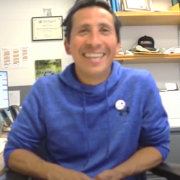
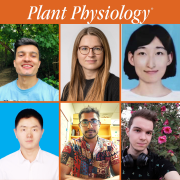
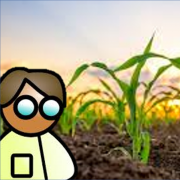
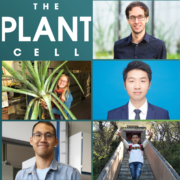
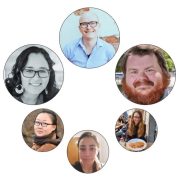
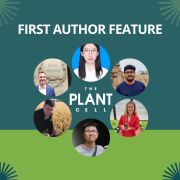
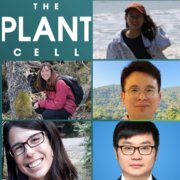
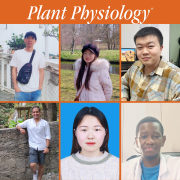


Leave a Reply
Want to join the discussion?Feel free to contribute!